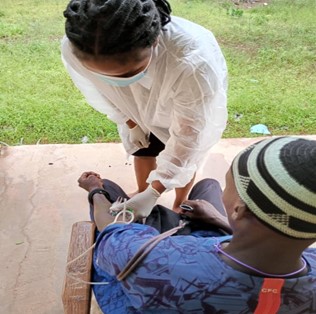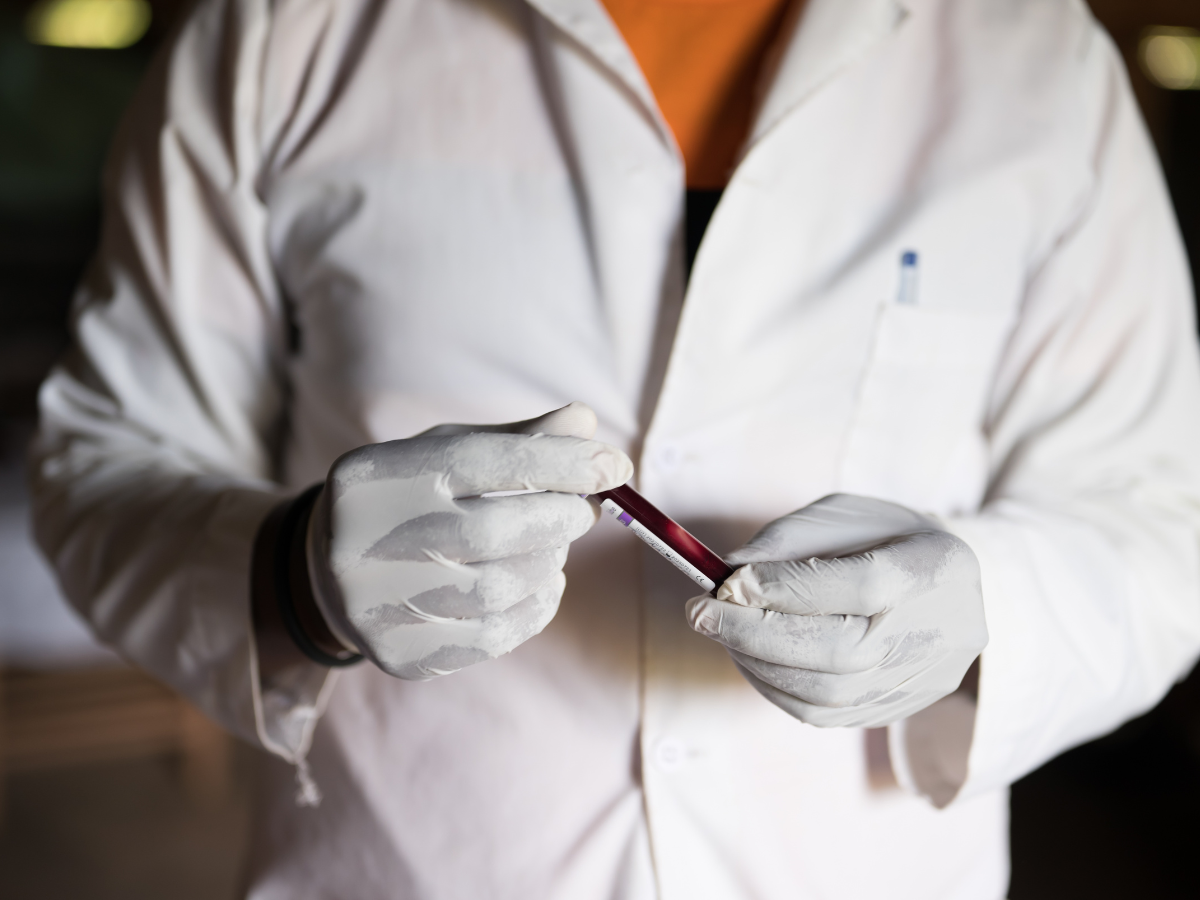With the rise of the COVID-19 pandemic in early 2020, resources intended for infectious disease management challenges were suddenly rationed across health facilities globally, impacting care, treatment, and long-term health outcomes. For people living with HIV, access to antiretroviral treatment (ART) was severely disrupted, decreasing viral load coverage and risking the onset of new infections.
In Nigeria, the RISE project – a Jhpiego-led consortium supported by the U.S. President’s Emergency Plan for AIDS Relief (PEPFAR) through the U.S. Agency for International Development (USAID) – implemented a community-based model that significantly increased access to viral load testing and improved viral load suppression across all population groups, overcoming many of the health care limitations brought on by the pandemic.
RISE, with ICAP as a technical partner, supports 102 facilities in Akwa Ibom, Cross River, and Taraba states in Nigeria, providing viral load testing services to more than 117,000 recipients of care on ART. When COVID-19 intensified in Nigeria, clinic closures impacted access to medication and testing at health facilities and physical distancing limited direct person-to-person services. ART uptake in the northeast region of Nigeria decreased from 93 percent to 68.8 percent among key populations and there was a 356 percent overall increase in the rate of missed appointments from six months before the pandemic compared to six months into the pandemic.

A recipient of care undergoes viral load testing in Nigeria.
The RISE project’s community-based ART surge strategy harnessed differentiated service delivery (DSD) – a responsive, client-centered approach that adapts HIV services across the care cascade to better serve individual contexts – for viral load services. RISE established ART refills and viral load sample collection to be conducted in a variety of spaces, including homes, community-based private health facilities, and public health facilities. The team also introduced access to multi-month dispensing of medication supply, meaning recipients of care could receive ART for three or six months at a time, requiring fewer trips to health facilities.
RISE also rolled out capacity strengthening activities for viral load champions, or health staff assigned to facilities to help monitor and optimize viral load activities, such as the follow-up of recipients of care eligible to receive viral load test results. RISE helped viral load champions acquire “COVID-19 passes” from local authorities. These passes enabled the champions to move more freely throughout communities to address viral load challenges during the lockdown.
“Integrating routine viral load services into existing DSD models enabled uninterrupted, client-centered HIV services, even in the face of an evolving pandemic,” said Timothy Yakubu, a senior laboratory advisor for RISE in Nigeria. “It was vital that we ensured all recipients of care eligible for viral load monitoring to have ready access to a viral load test.”
RISE’s community-based model also addressed the issue of late return of results by enabling remote e-results to be delivered via email and WhatsApp to the health facility for client management. As a result of this intervention, the turnaround time of results returned decreased from 35 days to 25 days. Clinic appointments were also realigned to spread out recipients of care across all quarters of a health facility.
After implementing these strategies, ART uptake at RISE-supported facilities in Nigeria increased from 59 percent six months before the pandemic to 75 percent six months into the pandemic. On-time ART refill pick-ups increased from 89 to 100 percent and there was an increase in viral load suppression from 83 to 98 percent, with major viral suppression improvements among recipients of care receiving multi-month dispensing of ART.
In addition to the impacts felt by recipients of care, the COVID-19 pandemic also severely impacted laboratory services and staff. Skilled laboratory staff and equipment were rationed between HIV and COVID-19 testing services. In northeast Nigeria, the pandemic resulted in a sharp decrease in the proportion of viral load samples transported to the testing laboratory, from 81 percent four months before the pandemic to 19 percent three months into the pandemic, among key populations.
The RISE team worked to integrate HIV service provision with COVID-19 service provision. RISE developed guidelines and protocols to guide safety practices and provided personal protective equipment and other commodities to health facilities – once government permission was given to move more freely, RISE staff worked with COVID teams to integrate viral load sample collection, ART delivery, and TB screening for recipients of care at the community level.
At RISE-supported facilities, viral load samples collected increased from 31,848 pre-COVID to 42,955 during the COVID-19 lockdown. This contributed to an overall improvement in viral load coverage, increasing by 20 percent for children, 20 percent for adolescents and young people, 72 percent for pregnant and breastfeeding women, 14 percent for non-pregnant adult women, and 18 percent for men.
“Early sample collection and analysis is a best practice for maintaining viral load suppression at an optimal level,” said Prince Anyanwu, technical director of RISE in Nigeria. “We hope to ensure that capacities and systems exist at all times to support early sample collection, analysis, and return of viral load results to aid in clinical decision-making.”
“We worked as a team,” said Friday Abbah, a lab advisor for RISE in Nigeria, “and every contact with a patient in the health facility or community, whether by a lab scientist or case manager, was an opportunity to provide services.”
About ICAP
A major global health organization that has been improving public health in countries around the world for two decades, ICAP works to transform the health of populations through innovation, science, and global collaboration. Based at Columbia Mailman School of Public Health, ICAP has projects in more than 40 countries, working side-by-side with ministries of health and local governmental, non-governmental, academic, and community partners to confront some of the world’s greatest health challenges. Through evidence-informed programs, meaningful research, tailored technical assistance, effective training and education programs, and rigorous surveillance to measure and evaluate the impact of public health interventions, ICAP aims to realize a global vision of healthy people, empowered communities, and thriving societies. Online at icap.columbia.edu








